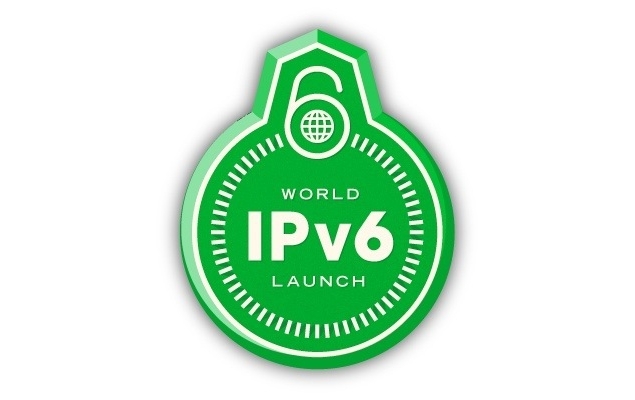- Home
- Internet
- Internet News
- Internet switches to IPv6, Trillions of new net addresses now possible
Internet switches to IPv6, Trillions of new net addresses now possible

The switch occurred at 0001 GMT Wednesday, when Internet operators switched to a new standard called IPv6 that allows for trillions of "IP" numbers or addresses, up from the current 4.3 billion.
"To ensure the Internet can continue to grow and connect billions more people and devices around the world, thousands of companies and millions of websites have now permanently enabled the next generation of Internet Protocol (IPv6) for their products and services," the Internet Society, an advisory panel, said.
"Participants in World IPv6 Launch include the four most visited websites in the world -- Google, Facebook, YouTube, and Yahoo! -- as well as home router manufacturers and Internet Service Providers in more than 100 countries. By making IPv6 the 'new normal,' these companies are enabling millions of end users to enjoy its benefits without having to do anything themselves."
Vint Cerf, one of the inventors of the Internet standard, who is now the "chief Internet evangelist" at Google, said the change gives the Internet room to grow.
"When the Internet launched operationally in 1983, its creators never dreamed that there might be billions of devices and users trying to get online," he said.
"Yet now, almost three decades later, that same Internet serves nearly 2.5 billion people and 11 billion devices across the globe. And we're running out of space."
The full transition will take several years, and old IPv4 devices and networks should continue to function as before.
"We're proud to be one of the founding participants; virtually all Google's services have been available over IPv6 for a while, but IPv6 access was only available to networks participating in the 'Google over IPv6' program," Cerf said.
"From now on, they will be made available to any IPv6 network on the Internet (well, almost any)."
Some analysts say there may some annoyances for people using older equipment, because the "path" to websites using compatible equipment may be different.
Each piece of hardware -- including home computers, tablets and mobile devices -- has a unique IP address to connect to the Web.
With about seven billion people on the planet, the IPv4 protocol doesn't allow for everyone to have a gadget with its own online address.
The situation has been equated to not having enough telephone numbers for every user.
Cisco is projecting that by 2016, there will be nearly 18.9 billion network connections, or nearly 2.5 connections for each person on earth, compared with 10.3 billion in 2011.
If there are not enough addresses, neighbors will have to start sharing IP addresses, which can slow things down.
Get your daily dose of tech news, reviews, and insights, in under 80 characters on Gadgets 360 Turbo. Connect with fellow tech lovers on our Forum. Follow us on X, Facebook, WhatsApp, Threads and Google News for instant updates. Catch all the action on our YouTube channel.
Related Stories
- Samsung Galaxy Unpacked 2026
- iPhone 17 Pro Max
- ChatGPT
- iOS 26
- Laptop Under 50000
- Smartwatch Under 10000
- Apple Vision Pro
- Oneplus 12
- OnePlus Nord CE 3 Lite 5G
- iPhone 13
- Xiaomi 14 Pro
- Oppo Find N3
- Tecno Spark Go (2023)
- Realme V30
- Best Phones Under 25000
- Samsung Galaxy S24 Series
- Cryptocurrency
- iQoo 12
- Samsung Galaxy S24 Ultra
- Giottus
- Samsung Galaxy Z Flip 5
- Apple 'Scary Fast'
- Housefull 5
- GoPro Hero 12 Black Review
- Invincible Season 2
- JioGlass
- HD Ready TV
- Latest Mobile Phones
- Compare Phones
- Tecno Pova Curve 2 5G
- Lava Yuva Star 3
- Honor X6d
- OPPO K14x 5G
- Samsung Galaxy F70e 5G
- iQOO 15 Ultra
- OPPO A6v 5G
- OPPO A6i+ 5G
- Asus Vivobook 16 (M1605NAQ)
- Asus Vivobook 15 (2026)
- Brave Ark 2-in-1
- Black Shark Gaming Tablet
- boAt Chrome Iris
- HMD Watch P1
- Haier H5E Series
- Acerpure Nitro Z Series 100-inch QLED TV
- Asus ROG Ally
- Nintendo Switch Lite
- Haier 1.6 Ton 5 Star Inverter Split AC (HSU19G-MZAID5BN-INV)
- Haier 1.6 Ton 5 Star Inverter Split AC (HSU19G-MZAIM5BN-INV)







![[Partner Content] OPPO Reno15 Series: AI Portrait Camera, Popout and First Compact Reno](https://www.gadgets360.com/static/mobile/images/spacer.png)









